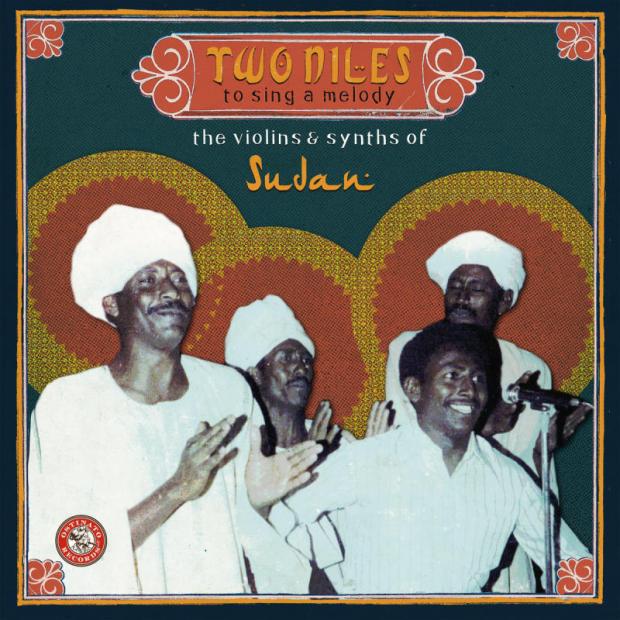This year is the 25th anniversary of the World Beat column. It began all the way back in February 1994. That's right, in the last century. We survived the millennium and have forged ahead into the 21st century.
Things were very different back in 1994. I had only returned to Thailand having spent time working in Japan at the beginning of 92. It was a momentous time, what with the political violence of that year and the death of luk thung superstar Pumpuang Duangjan.
In the music industry, a major format change was in progress as vinyl and the hugely popular cassette were steadily being replaced by compact discs. I remember my father, a lifelong vinyl fan, telling me that both CDs and cassettes "dulled" the sound by lopping off high and low frequencies. He was right, too, in his assessment that people who valued good sound would return to vinyl and amplifiers made using tubes and valves rather than transistors and capacitors. In the UK last year, vinyl sales outstripped downloads.

Photo: John Clewley
And we are now in the middle of another format shift as music punters abandon downloads for live streaming services. The smaller, independent labels currently ship their music in two main formats: vinyl and downloads (bundled together). They no longer support CDs. Also, some independent bands are using cassette technology to make demo tapes and limited edition releases. It's easy to get a cassette player with a USB link to digitise the music. Of course, there are still audiences who prefer cassettes and CDs (no takers for 8-track technology). Notably, they still sell well in Japan.
In terms of world music, many of the trends that began in the late 1980s have developed significantly over the past 25 years. Pioneering festivals like WOMAD in the UK and Angouleme in France have become permanent fixtures (although, sadly, WOMAD now suffers from musicians being unable to gain the necessary visas, due to UK visa policies) and have spawned festivals that celebrate musical diversity across the planet; think of the Rainforest World Music Festival in Sarawak, Malaysia, which World Beat has reported on for a decade, and which has got to be one of the best music festivals in the region.
In the 1990s, a number of labels emerged to produce and promote non-Western popular music. First, the likes of Putamayo and Ellipsis Arts made CD packages that focused on a country or a genre, such as Cuban music or salsa; many came with excellent liner notes and historical photographs. This trend continues with the Rough Guides series produced by World Music Network.
But I think the most exciting development has come from independent labels that focus on a genre and do the field research to uncover forgotten gems from earlier eras. Labels like Soundways and Analog Africa have produced sublime records on African and Latin American music. The compilers seek out vinyl gems, often 7-inch singles, which are restored and reproduced, along with interviews and notes on the history of the genre. I have a new one sitting on my turntable right now: a new compilation from Ostinato Records, Two Niles To Sing A Melody -- The Violins And Synths Of Sudan. I will review this one in a later column but let me just say that for now, that this is an essential compilation -- great for dancing!
There are also plenty of compilations on Southeast Asian popular music, led by Thailand's Zudrangma Records (also see Christ Menist and Maft Sai's Sounds Of Siam volumes 1 and 2). However, some compilers who produced them do not seem to take copyright seriously. They mine the region for music but do not bother to find out who owns it; then they produce it in Europe or the US for the global market.
The situation for pirate copying is even worse for local artists in Thailand. If you go down to Klong Thom market in Chinatown, you can find most of the careers of all the top pleng luk thung stars available on a flash stick. So the entire career of a National Artist like Waipot Petchsupan, who has been performing over 50 years, can be got on a memory device for just 150 baht. That seems to me to be very wrong.
The biggest change from the early days of the World Beat column is that there is now a vibrant club scene with lots of knowledgeable DJs spinning great vinyl (and in the case of DJ African Trekker, doing an entire session only using cassettes, which must have been a logistical nightmare). I tried to set up a world music night near Khao San Road in 1994 but it was short-lived. There were no other DJs playing African, Latin and Thai music in Bangkok. It failed miserably, really.
It was just the wrong time. The young entrepreneurs who have set up Studio Lam, Jam, Soul Bar and lots of others have created a scene I could only dream about in the early 1990s. It's a lot of fun. I take my hat off to them all.
To celebrate the 25th anniversary of World Beat in style, I would like to invite you all to Studio Lam on April 4 for a World Beat Night of epic proportions. From 9.30pm till late, I'll be spinning samples of the music featured in this column over the past quarter of a century, alongside several star DJs. Come and join us as we celebrate the past 25 years and look forward to the next 25.
John Clewley can be contacted at clewley.john@gmail.com
